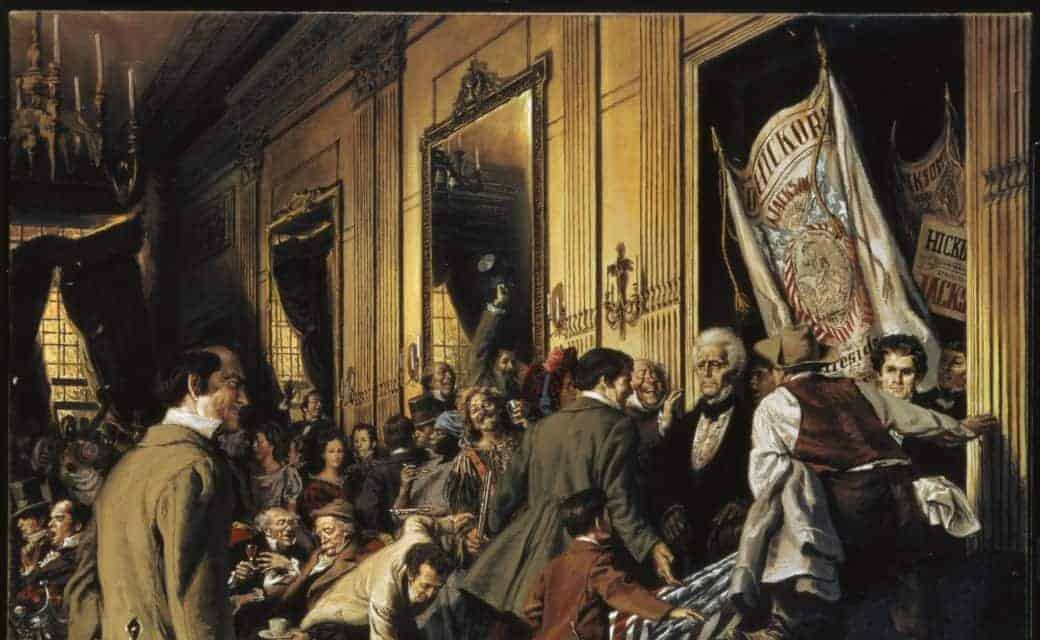A powerful argument can be made in support of Andrew Jackson being the most controversial person ever to serve as President of the United States. Full of paradoxes, Jackson’s positive achievements in service to his country were numerous. However, he was responsible for some of the most disturbing decisions in American history as well. He was the hero of New Orleans, conqueror of Florida, eliminator of the national debt, champion of the common man and father to a Native American orphan. He was also a thief of Native American property, faithless to the Constitution he swore to upload, destroyer of American financial institutions and killer of native peoples.
Few Presidents can claim to have lived lives as unique and with greater impact upon the history of the United States. Fewer still, if any, can lay claim to such a starkly mixed record of accomplishments. Why then, should Jackson’s inaugural festivities be any different? His inaugural reception was just as unique and complicated as the man himself. As it turns out, it would become just as historic and fateful as well.
Andrew Jackson’s 1828 presidential victory represented a massive change in American politics. For the first time, white men that did not own property were allowed to vote in a Presidential election. Overwhelmingly, those newly-enfranchised voters cast their ballots for “Old Hickory“, as Jackson was warmly known amongst supporters. That enthusiasm translated into a large crowd, eager to hear their champion share his thoughts as to what Jackson was planning for his tenure as President.
One long-time D.C. socialite, Margaret Smith, described the inauguration address with awe and excitement: “the old man [Jackson] with his grey locks…bows to the people, who greet him with a shout that rends the air, the Cannons…proclaim the oath he has taken and the hills reverberate the sound. It was grand, – it was sublime!” So excited was the crowd that it was difficult for the new President leave for his reception, as crowds of admirers were blocking his way, unwilling or unable to part for their hero.

Things quickly took a turn for the worse, at least for the once-adoring Mrs. Smith. Frustrated that she could not even get close to the White House, it took her hours to finally enter and view the scene for herself. Perturbed that “the Majesty of the People had disappeared, and a rabble, a mob, of boys, negros [sic], women, children, scrambling fighting, romping” appeared in its place. “What a pity what a pity!”, she lamented. Leaving Mrs. Smith’s biases aside, things were rapidly getting out of hand. What was probably just innocent excitement over a historic election was soon to become destructive and even dangerous to Andrew Jackson himself.
The throng of admirers, 10 to 20,000 by most estimations, continued to descend upon the White House, all wishing to see the man of the hour. So many relentlessly pushed toward Jackson that the men immediately around him needed to act as a barrier against an ever-increasing amount of people. Jackson was pushed against a wall, eventually needing to exit through a door or possibly a window, depending on which eye witness one decides to believe.

